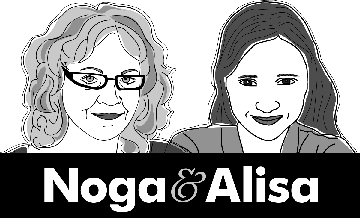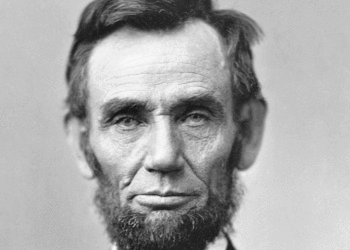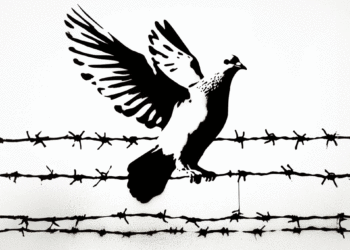By ALISA WARSHAVSKY
(Author’s note: Three days after I finished writing this article, Israel was condemned around the world for exercising its right to self-defense. Yet again the international media portrayed Israel as a country that would attack innocent people — as if those armed with knives and clubs were peaceful activists on a humanitarian mission. Aside from this introduction, I have decided to leave my article just as it was because nothing proves how one-sided the court of world opinion is better than watching today’s news about Israel.)
Only a vision makes people’s hearts beat. One who doesn’t have it, even as intelligent as he would be, he couldn’t lead people, and after he’s gone, no impression would stay in the world. — Theodor Herzl
 Growing up in Israel you are taught at a very young age who Theodor Herzl is, or as we say in Hebrew, ha-aish ve hagade (the man and the legend). A tour of Israel will give you an understanding of the importance of Herzl to Israel as a state — every city has a Herzl Street, and the city of Herzliya and Mount Herzl in Jerusalem are named for Herzl. The list goes on.
Growing up in Israel you are taught at a very young age who Theodor Herzl is, or as we say in Hebrew, ha-aish ve hagade (the man and the legend). A tour of Israel will give you an understanding of the importance of Herzl to Israel as a state — every city has a Herzl Street, and the city of Herzliya and Mount Herzl in Jerusalem are named for Herzl. The list goes on.
Bridging Israel and Minnesota
I will start at the end: Herzl is entombed at Mount Herzl. Forty-five years after he died, and one-and-a-half years after the state of Israel was established, the first Knesset (Israeli parliament) decided to fulfill his will and return his remains to Israel. Mount Herzl became the official state cemetery, where all the great leaders and soldiers are buried.
When you see Herzl’s grave, you notice a very simple monument adorned with a single word: Herzl. Nothing else needs to be said about the man.
Every day, Mount Herzl is visited by hundreds of soldiers, teenagers and tourists, who come to sit on the grass and learn about the history of Israel. Once a year, on Yom Hazikaron (Israel Memorial Day), there is a ceremony to remember all those who have died during service to the State of Israel, and it ends with the opening of Yom Ha’atzmaut (Israel Independence Day) celebrations.
As an IDF education officer, it was my responsibility to ensure that every single soldier and officer in my unit would visit Mount Herzl to learn the history of the great people who are buried there.
As we celebrate Herzl’s 150th birthday, questions arise that must not be ignored. If the meaning of Zionism is, as Herzl said, a “policy for establishing and developing a national homeland for Jews in Palestine,” then what happens to Zionism 62 years after the formation of that state? What is the modern relevance of Zionism after Herzl’s dream has been fulfilled?
I believe Zionism is alive and essential to the survival of Israel. We have established a state, but the road is still long and many challenges exist to protect that state.
Two months before his death, Herzl wrote, “I strongly believe that even after our land, the land of Israel, would be established, Zionism will not stop being an ideal. Zionism does not only include the will to the Promised Land, but also the strong yearning to spiritual fulfillment.” More than 100 years after Herzl’s death, we are still far from answering all of the questions about our Jewish identity and how that identity relates to Israel.
As the years pass, the gap between the Zionist dream and reality grows. Young Jews in the Diaspora see Israel through the mass media as a modern Jewish state beset by problems. Israeli teens now are very critical; they explore and judge the actions of their nation. Nowadays, Zionism requires learning about the obstacles that Judaism faces; these questions have taken on a very different shape from the ones we have dealt with in the past.
Taking my soldiers to Mount Herzl enabled me to learn what Zionism means to the young soldiers in the IDF. It’s in that place that some of their friends who died in Israeli wars are buried next to the leaders of our nation. Also, you can see Yitzhak Rabin’s grave, and a memorial containing the names of those murdered in terrorist attacks.
Every time I took soldiers to visit Mount Herzl, I would see them moved to tears by the meaning of Herzl’s ideal, of Zionism and what it means to them. Every visit to Mount Herzl made them stronger, and made them believe and understand that Herzl’s dream to establish a Jewish state has been fulfilled. But the vitality, direction and the protection of that state is still very much a work in progress.
Happy birthday, Theodor Herzl. We admire you, we teach about you in schools; and I’m sure that if you could see us now, you would smile and feel proud. And we continue to ask challenging questions and build the State of Israel. After all, you told us: “If you will it, it is no dream.”
***
Alisa Warshavsky is the Israeli emissary on behalf of the United Jewish Fund and Council of St. Paul, and Noga Shavit is the Israeli emissary on behalf of the Minneapolis Jewish Federation. They are here to build connections between Israel and our local communities.
For information on upcoming Israel-related events, contact Warshavsky at 651-353-2670 or: alisa@stpauljcc.org. She also writes a blog called Israel hotDISH, which can be found online at: www.jewishstpaul.org (click on the link under “Updates”).




















